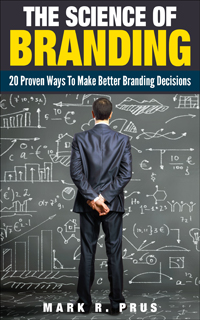Curiosity Killed the Cat
But It Really Revs Your Brain!

Photo by Cleyton Ewerton on Unsplash
Almost everyone loves a good magician. The magician’s sleight of hand technique in making a coin or playing card disappear/reappear delights us, as we usually take pleasure in being fooled in this manner. Once fooled, our curious brain rapidly kicks into gear and tries to figure out how the magician did the trick. Sometimes you figure it out, and then you get even greater pleasure. Even when you can’t figure it out, you are still amazed!
Magic tricks only work if two things occur. First, the magician must divert your attention away from where the actual trick is happening, and second, your brain must fill in any missing information by combining what you already know with whatever you perceive at that very moment. Truth be told, the magician is not creating the illusion — your brain is creating the illusion that something has happened (when in reality the magician has done something else).
The science behind the brain’s “filling in” process is fascinating (read this Discover magazine article). The sub-headline of the article says it all: “The eye and brain work in a partnership to interpret conflicting signals from the outside world. Ultimately, we see whatever our brains think we should.”
Here is a great example of how the “filling in” process works. Quickly read the paragraph below:
It deosn’t mttaer in waht oredr all the ltteers in a wrod are. You can stlil raed it wouthit a porbelm bcuseae the huamn mnid wroks by a porecss of ptatern rceigontion. It dtemrines maennig bfoere porecssnig dteails.
Isn’t tihs amzanig? Your brain can make sense of even the most chaotic situation.
Another way the brain “fills in” to provide a seamless reality is dealing with blind spots. I’m not talking about the areas where you cannot see in the rear-view mirror of your car! I’m talking about the significant gaps that exist in your vision. You may not be aware of them, but there are parts of your retina that have no photoreceptors and therefore you are essentially blind in that area. Nevertheless, your brain fills in those gaps so your perception of reality is flawless.
The “filling in” process has been shown in numerous studies to be important to generating lasting recall and favorable persuasion of messages and experiences. If the person’s brain is engaged and filling in the gaps, then the person will remember the experience and usually be favorable towards it.
By engaging with a mind puzzle, your brain is demonstrating curiosity. Author Ian Leslie describes curiosity as a combination of intelligence, persistence, and hunger for novelty in his book Curious: The Desire To Know And Why Your Future Depends On It. He makes a strong argument that maintaining curiosity is critically important as we grow older and are subjected to ever-increasing demands on our focus.
In their Psychology Today article The Mind of the Puzzler psychologists Sternberg and Davidson argued that solving puzzles entails the ability to compare hidden information in a puzzle with information already in memory. More importantly, in order to solve a puzzle, the brain must combine the two types of information to form novel ideas. When the brain successfully identifies the pattern or twist that the puzzle entails, you will typically get an “Aha! Effect” which leads to a positive emotional feeling as well. Challenging your brain with puzzles has been shown to improve memory and brain function in numerous clinical studies (here is the latest).
Another great way to engage your curious brain is to read mysteries. Mysteries are often more engaging than puzzles because often there is no definitive answer as there is with a crossword puzzle. Mysteries are murkier, and the brain likes to be challenged with questions that are complex and interrelated.
Curiosity has been shown to be a great benefit to the human brain. We should all strive to be more curious about our lives, especially as we get older. So read a great mystery or do a daily crossword puzzle! Engage with a different group of people. Learn some new skills. Your brain will thank you later!



